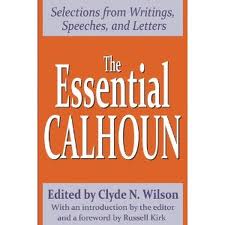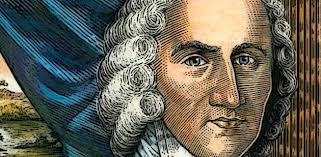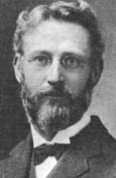
Constitution Day
Happy Constitution Day. In celebration of the Constitution of the United States, here is a link to a piece I wrote recently on the constitution; here is a link to a post from a while back; here is a link where Joe Sobran recounts his trek to the Constitution.
- Details
- Category: Recommended Reading Recommended Reading
- Published: 17 September 2012 17 September 2012
- Hits: 2777 2777
Russell Kirk on John C. Calhoun

A number of years ago I had the pleasure of meeting Clyde Wilson. Professor Wilson has spent many years editing The Papers of John C. Calhoun. He taught history for many years at the University of South Carolina. I was wanting to look up something on Calhoun the other day, and turned to Wilson's edited volume, The Essential Calhoun: Selections from Writings, Speeches, and Letters (Transaction, 2000). I noticed (and had forgotten) that Russell Kirk had written the foreword to this one volume collection of Calhoun's writings (by the way, the introduction by Wilson himself is an excellent way to get acquainted with Calhoun). Calhoun's own understanding of consitutional government, and of the way in which a constitutional government can slide into tyranny is arguably unmatched. Calhoun wrote in 1842:
"As the Government approaches nearer and nearer to the one absolute and single power, the will of the greater number, its action will become more and more disturbed and irregular; faction, corruption, and anarchy, will more and more abound; patriotism will- Details
- Category: Recommended Reading Recommended Reading
- Published: 03 September 2012 03 September 2012
- Hits: 4431 4431
Jonathan Edwards on Perseverance

In working on a monograph titled Covenant and Command: Works, Obedience, and Faithfulness in the New Covenant, I am wrestling with a number of things, including the relationship of justification and sanctification (and between justification and perseverance in particular).
Jonathan Edwards wrestled with this at great length. Here are a couple of selections from volume 19 of the Yale edition of his works (pages 202-203).
"So that although the sinner is actually, and finally justified on the first act of faith, yet the perseverance of faith, even then, comes into consideration, as one thing on which the fitness of acceptance to life depends. God the act of justification, which is passed on a sinner's first believing, has respect to perseverance, as being virtually contained in that first act of faith and 'tis looked upon and taken by him that justifies, as being as it were a property in that faith that then is: God has respect to the believer's continuance in faith, and he is justified by that, as though it already were, because by divine establishment it shall follow; and it being by divine constitution connected with that first faith, as much as if it were a property in it, it is then considered as such, and so justification is not suspended; but were it not for this it would be needful that it should be suspended, till the sinner had actually persevered in faith."
- Details
- Category: Recommended Reading Recommended Reading
- Published: 01 September 2012 01 September 2012
- Hits: 4126 4126
Geerhardus Vos on Paul and Jesus

One of the joys of trying to study and write is the multitude of serendipitous discoveries that one makes along the way. I am trying to finish a monograph, Covenant and Command: Works, Obedience, and Faithfulness in the New Covenant (working title--no pun intended). At present I am trying to deal with the question of justification and future judgment. And I have turned to an older essay by Geerhardus Vos, "The Alleged Legalism in Paul's Doctrine of Justiification." As I read the introduction I was struck by the prescient nature of Vos' thoughts. Here is Vos, found in Redemptive History and Biblical Interpretation, ed. Richard B. Gaffin, Jr. (p. 383). Vos speaks of
". . . the modern attempt to supplant the theology of the Reformation, so largely based on Paul, by a less elaborate, less speculative, more congenial, because supposedly more humanitarian type of religious thought. As Paul is usually identified with the traditional theology, so Jesus has come to stand in many minds for the milder, more simple, form of Christianity toward which the tide has been setting for some time and seems to be setting ever increasingly. The watchword, 'Back to Christ,' implies the charge, whether consciously realized or not, that Paul has deflected the original impulse imparted by Jesus to Christianity, by bringing to bear up on it another force of decidedly lower character. If such a view could be historically justified, it would furnish the best conceivable defense of the modern desire to shake off the theological trammels of the past. If it cannot be justified, if it can be shown that the theology of Paul is the legitimate offspring of the teaching of Jesus, then an equally strong apology for the type of religion inherited from the Reformation will have been furnished. Paul being the true heir and successor of Jesus, all those who profess to be historic Christians must feel in some sense bound to Paul, as they desire to be loyal to Christ."
Well said.
- Details
- Category: Recommended Reading Recommended Reading
- Published: 30 August 2012 30 August 2012
- Hits: 3816 3816